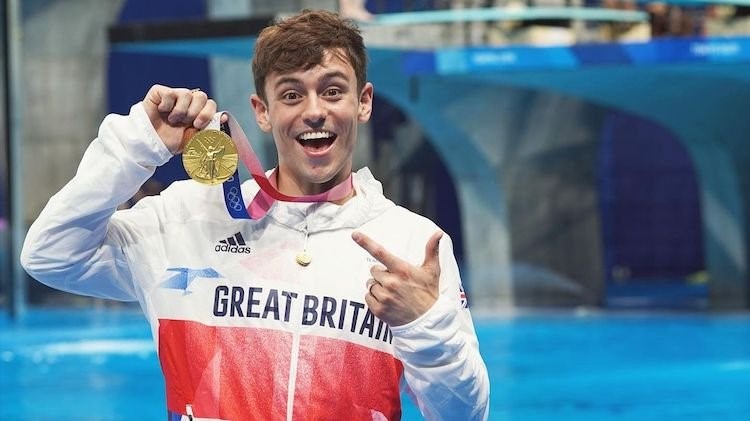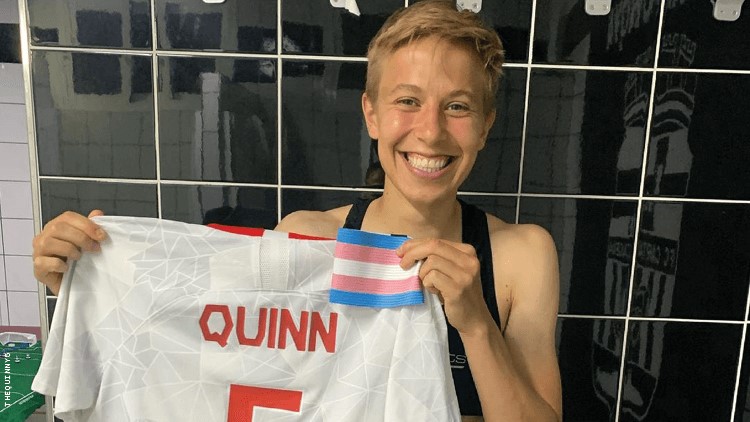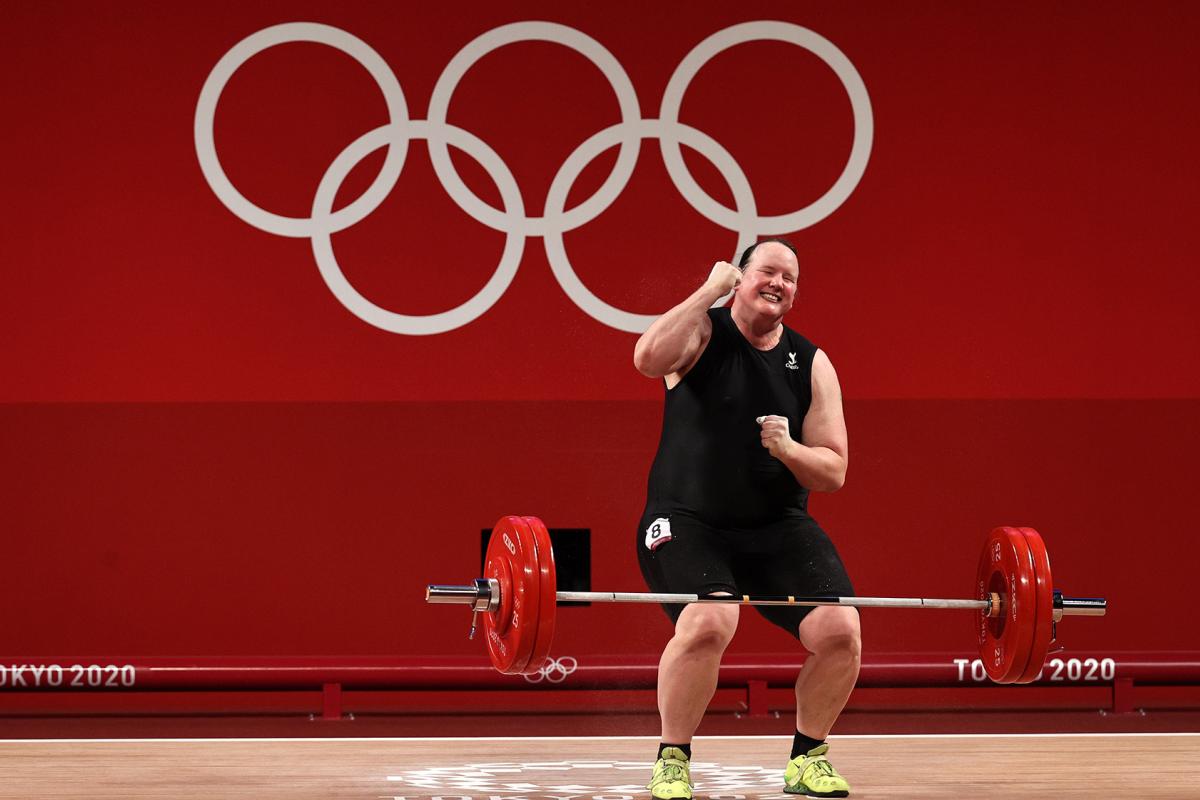In the afterglow of an unreal few months of sport, kicking off with a sublime Euros and rolling into daily jaw-dropping joy of the Olympics, and before the Paralympic Games closes out the summer with yet more mind-blowing feats, it feels like a good juncture to reflect on what’s been achieved beyond the medals at the most inclusive Tokyo 2020 ever and the opportunities that lie ahead for brands looking to embrace an activist mindset.

The Olympics were the queerest they’ve ever been this year with three times more out athletes than at Rio in 2016. In fact, according to Outsports had they been competing as a country, openly LGBTQ+ Olympians would rank 12th in medal tables, which is no mean feat considering they still only made up only 2% of overall participants. And in the Paralympics at least 22 LGBTQ+ athletes are competing this year which is nearly double the no. of Rio. While there’s much to celebrate, the games also provide a magnifying glass for how far there is still to go in LGBTQ+ inclusion and acceptance in sport and way beyond it.
Non-binary athletes more visible than ever this year too, like Quinn who became the first transgender non-binary person to win gold as part of Canada’s football team, or USA’s Alana Smith who had ‘they/them’ pronouns proudly emblazoned on their competitive skateboard. Despite this increased visibility (and some gentle but highly visible guidance on gender-literacy) international TV commentators from NBC to BBC were repeatedly mis-gendering competitors.
Ironically the BBC are no strangers to doing the work getting gender terms and pronouns right on some of their shows, but it’s essential brands show a commitment to this approach when the world is watching too. Visibility is one thing, but making sure pronouns and gender terms are respected in communications is vital in making sure everyone feels seen. By working with the community to better understand their needs, brands can easily do better in this on the global stage.

While trans success stories like Quinn’s and New Zealand weightlifter Laurel Hubbard’s are inspiring, trans inclusion at the games (and the sport world as a whole) is still highly conditional. Like US athlete CeCe Telfer, excluded from competing in the women’s 400m hurdles at Olympic Trials because she did not meet the required levels of testosterone, the alternative being that she take a hormone reducing drug to lower her levels. Brand support for CeCe could’ve been powerful, as queer athlete and Nike ambassador Caster Semenya might attest, her hyperandrogenism meant she was excluded from Tokyo 2020 for the same reason.
She was supported by Unilever brand Lux, who petitioned World Athletics to overturn their ban and allow her to compete as a woman. Brands using their platform like this to support queer athletes is invaluable, and those that vocally support trans athletes are even more crucial. Until we have a future Olympics that embraces genderless categories or a more nuanced and empathetic approach to the spectrum of diverse genders competing, pressure in this space are vital.

It would be a dream to think that with more out Olympians than ever, homophobia and transphobia would be on the decline. But as the football world demonstrated with racist incidences around the Euros, societal problems do not simply disappear when sporting excellence is on the agenda. Far from it. A TikTok trend for sharing Grindr profiles of out athletes during the competition put many in danger, particularly in countries where LGBTQ+ rights are not a given (see: the homophobic and transphobic abuse Tom Daley and Laurel Hubbard received from Russian TV commentators).
While Grindr condemned the activity and stated it was in breach of their Terms, TikTok where helping perpetuate homophobic posts by pushing them onto users ‘For You’ pages (and not for the first time) receiving over 140K views before eventually being taken down. TikTok have been under fire in the past for shadow-banning LGBTQ+ tags and playing into the hands of countries that do not support LGBTQ+ rights rather than showing true solidarity with the community. A community that is helping drive the success of the platform and deserves allyship that protects them better, runs deeper and shows up stronger.
The Olympians, Games and every brand in their orbit sending a strong message of inclusion is so important, not just for markets where homosexuality is legal but for the 10 countries competing (and others) where being gay carries a death sentence. If brands like TikTok or Olympic sponsors Coca-Cola really used their platform to challenge and support in these markets, it could be world-changing. All the rainbows products and Pride campaigns in the world in countries where LGBTQ+ rights are a given is one thing, but if they are not also showing vocal support to consumers in markets where their lives are at risk, those values can appear performative and two-faced.
While there is certainly some work still to do for the brands that dance attendance on major sporting events, what about sporting institutions themselves? Are we fostering open and inclusive enough environments to welcome and nurture future ‘Team LGBTQ+’ at the Olympics and elsewhere?
According to Outsports 2019 report on the Relevance of Sexual Orientation and Gender Identity in Sport, 90% of respondents said they consider homophobia and particularly transphobia in sport a problem, 82% had witnessed homophobic language in sport in the past 12 months and 33% remain completely closeted in a sports context. So the short answer is: survey says no. Taking sports like men’s football as a case in point, while we have arguably the most inclusivity-aware England men’s team in living history, there are currently no out Premier League players.
Given the stats and a culture of homophobia amongst some fans it’s easy to understand why. So what can be done? We loved the ’NFL is Gay’ solidarity campaign in American Football after Carl Nassib became the first NFL player to come out. But we need proactive moves, clubs that think bigger than rainbow laces and armbands, invest in awareness training, make sure LGBTQ+ fans and players feel seen, included and supported and take a strong line when they aren’t. It could be literally life-changing for the next wave of young athletes.

Brands can play a huge role ensuring future LGBTQ+ Olympians and crucially non-Olympians too, have an even more even playing field than the class of 2020. And some key ways brands looking to do better in this space?
- Get language right, work with the community to understand gender terms and pronouns.
- Trans representation is important in front of and behind the scenes, but it must be matched with vocal support for the challenges they face too.
- Are you supporting all your LGBTQ+ consumers or just where it’s safe to do so, if not why not?
- Take proactive steps to create environments where LGBTQ+ people feel safe and seen, think bigger than performative actions.
Want to know what your brand can do to provide even deeper support to the community? Drop us a line [email protected]



